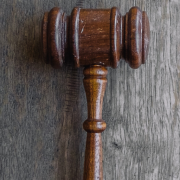What is Litigation?
What is litigation? What does it mean when a lawyer says that he or she is a litigator?
A litigator is someone that represents individuals or companies in lawsuits. This includes the entire process from filing a lawsuit all the way through to a jury trial or a bench trial before a judge. You may be asking yourself, “Isn’t that what all lawyers do?”
“Isn’t that what all lawyers do?”
Despite this common misconception, largely gleaned from television and movies, most lawyers do not spend their days in courtrooms. In fact, the great majority of lawyers rarely make appearances in courtrooms at all.
Lawyers handle a broad variety of transactional matters including drafting wills for estate plans, reviewing and advising clients on asset purchase agreements or contracts, or negotiating business deals for their clients. The litigation process is long, and most of it has nothing to do with ending up in a courtroom.
- Litigation begins when someone drafts and files a complaint.
In Pennsylvania this process can also begin by filing a “Writ of Summons.” - It continues with the attorneys sending discovery to the other parties involved asking them for documents, to answer questions, and to admit whether facts are true or false.
In addition, discovery involves taking depositions. Depositions are essentially private court appearances where a witness to a case sits before a court reporter and the attorneys involved in the case and answers various questions so that the information can be developed on the record for future use in the case. - Litigation then involves the filing of various motions including what are called dispositive motions.This includes motions for summary judgment which are typically filed at the close of discovery in a case. Motions for summary judgment ask the court to rule that the other party’s case is dismissed as a matter of law or that the filing party’s motion should be granted and they should be given a judgment as a matter of law. Many cases are resolved by a judge at this stage without a jury trial.
- The last step in the litigation process is the trial.
Sometimes it’s in front of a jury, sometimes it’s only in front of a judge. Regardless, the trial is the last step in the process. It’s the part of the litigation process that great television scenes are made of.
Litigation can also involve the appeal that happens after one party loses and then appeals the verdict to a higher court. Both the party and that lost and brought the appeal and the party that won will have to continue litigating against one another as the matter goes up on appeal before a new panel of judges who review the record to see if any mistakes have been made.
So, if you’ve been served with a lawsuit or wish to file your own, call the litigation attorneys at the Cornerstone Law Firm. We want to help you solve your problem today.









